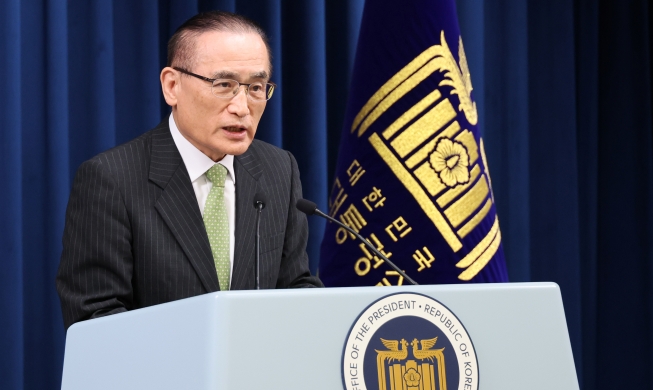View this article in another language
- 한국어
- English
- 日本語
- 中文
- العربية
- Español
- Français
- Deutsch
- Pусский
- Tiếng Việt
- Indonesian
By Korea.net Honorary Reporters Alexandra Taseva, Diana Trifonova and Yana Ilieva from Bulgaria
Video = Alexandra Taseva
Celebrating the new year is one of the most joyful occasions of the year around the world. The traditions that surround this big event shape human society even today. While reading articles on the way Seollal is celebrated in Korea, our team in Bulgaria was surprised to stumble on a Korean tradition resembling a Bulgarian one in nature. This article is thus an introduction to Korean sebae and Bulgarian survakane.
Bowing is an integral part of Korean society and thus it's no surprise that a special bow is set aside to mark Seollal: sebae. This custom displays respect for parents and elders and typically involves children dressed in Hanbok (traditional Korean attire), who wish a happy new year to their elders by performing a deep traditional bow. In return, parents and elders reward the children with "bowing cash" (sebaetdon). In the past, parents used to give children rice cake (tteok) and fruit instead of money.
According to the Encyclopedia of Korean Seasonal Customs, the tradition of exchanging wishes for good fortune with ceremonial bows is based on the belief that words have a magical power that can turn them into reality. Accordingly, these wishes are expressed with a sentence in the past tense as a way to congratulate the person on the fulfillment of their wish.
A major element of sebae is the wearing of Hanbok by all family members. The traditional clothing used to be worn daily but is today reserved for holidays and special occasions. The design of the female Hanbok features a slim top and a much larger skirt resembling a bell. Since the movement of the lower body is hidden, the female Hanbok gives its wearer the feeling of floating on air. The men’s Hanbok comprises the upper jacket jeogori and pants baji.
Nearly 8,300 kilometers away from Korea, Bulgaria also has its own tradition involving children and elders. Survakane is a Bulgarian folk custom performed during New Year’s Day on Jan. 1, as well as in Bulgarian ethnic territories and by ethnic Bulgarians abroad.
The custom consists of a group of survakars -- children ages 4-12 or bachelors in certain territories of the country walking round the neighborhood. They walk from house to house, entering homes, barns and stables while singing songs for health and fertility. Survakane itself consists of lightly hitting the back of a person with the survachka, or a willow branch decorated with yarn and dried fruit. In return, the hosts offer bread, wine, nuts, lard and small money to the people performing the ritual.
In the past, survakars mainly comprised bachelors hopeful of finding brides while passing through homes to perform the ritual. Today the focus of the ritual is kids, who show respect and appreciation to their parents and elder relatives by singing songs full of good wishes. One such song hailing from the village of Marchenik goes like this:
“Surva, surva new year,
to the new year oh amen,
Golden wheat on the field,
red apple in the garden,
house full of silk,
surva surva new year, to the next year, oh amen.”
The oldest people in a household, mainly grandparents, help children prepare their survachki for the holiday. They cover them with yarn, attach dried fruits on them and make a string of popcorns. The more things on the survachka, the better. In smaller cities, children still wear traditional clothes as they go around the neighborhood, while bigger cities see kids performing the ritual in front of their parents and close relatives only, receiving sweets and small amounts of money for their efforts.
Both the Korean sebae and the Bulgarian survakane are traditional displays of filial piety. And while their manners of implementation differ, both rituals by nature represent respect for the elderly and wishes for health, prosperity and success in the new year.
wisdom117@korea.kr
* This article is written by a Korea.net Honorary Reporter. Our group of Honorary Reporters are from all around the world, and they share with Korea.net their love and passion for all things Korean.
